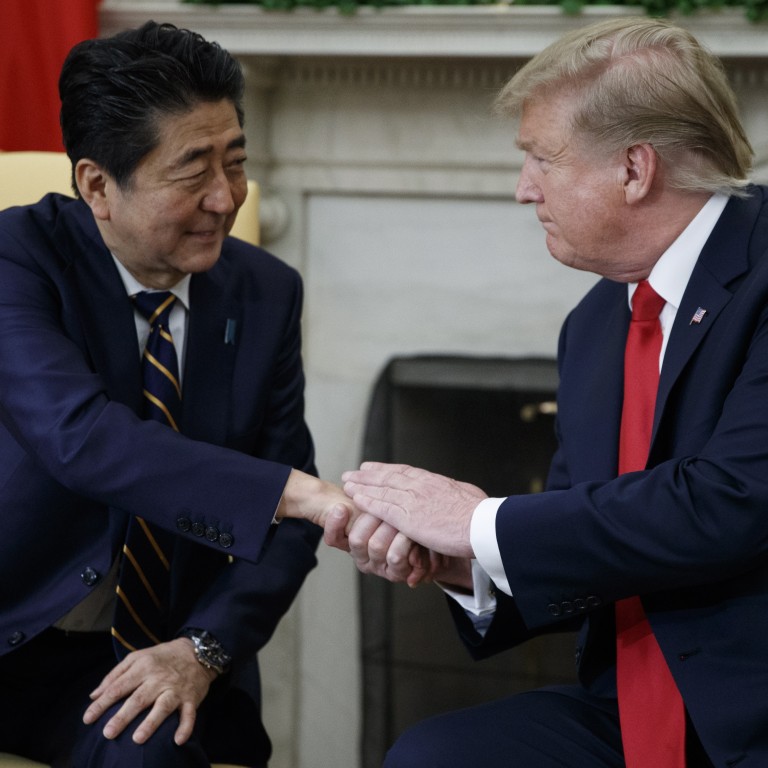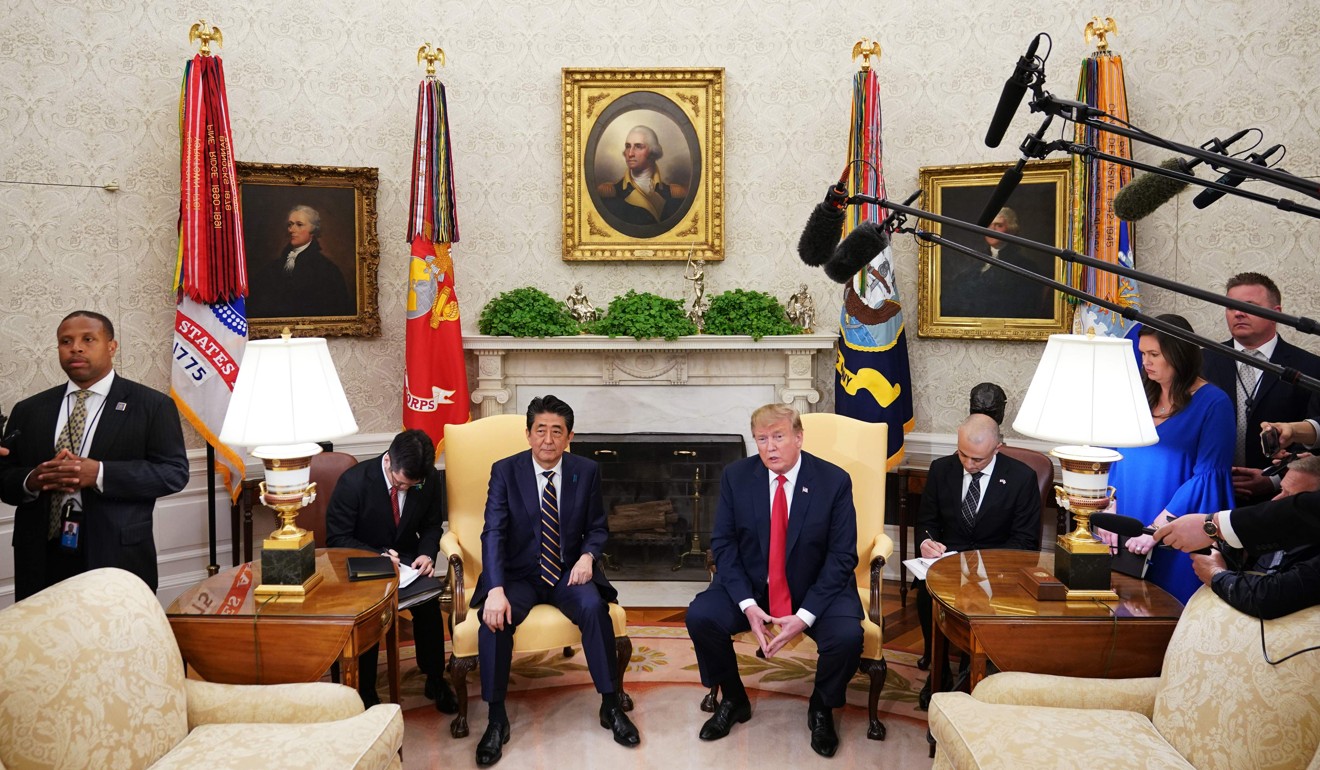
Tariffs, sumo and the Super Bowl: Donald Trump hosts Shinzo Abe, says US and Japan could reach trade deal by May
- Leaders spoke one on one in Oval Office before White House dinner to celebrate Melania Trump’s birthday
- Trump upbeat on negotiations ahead of his Tokyo trip, but tariffs on cars and agricultural goods may prove tricky
US President Donald Trump said on Friday it is possible that the United States and Japan could reach a new bilateral trade deal by the time he visits Tokyo in May, but he and Japanese Prime Minister Shinzo Abe cited areas where they differ on trade.
Trump and Abe held one-on-one talks in the Oval Office before a White House dinner to celebrate the birthday of Trump’s wife, Melania. While making progress in negotiations with China on a new trade deal, Trump made clear he wants to seal a new agreement with Japan soon as well.

Abe’s visit, which is to include a round of golf on Saturday with Trump, is to set the stage for a trip to Japan that Trump is taking in late May to celebrate Crown Prince Naruhito’s becoming the new emperor of Japan.
“We will also be going perhaps to a sumo wrestling match,” Trump said. “We are going to give the trophy to the winner of the championship.”
Naruhito is set to become Japan’s emperor on May 1. He will assume the throne after his father, Emperor Akihito, abdicates on April 30.
Trump said negotiators for the US and Japan are making progress in his drive to rebalance their trade relationship in a way that reduces chronic US trade deficits with Japan.
“I think it can go fairly quickly. Maybe by the time I’m over there. Maybe we sign it over there. But it’s moving along very nicely and we’ll see what happens,” Trump said about the trade deal.
Still, areas of tension surfaced during their session with the news media. Trump cited Japanese tariffs on American agricultural products as an irritant, and Abe brought up US tariffs on Japanese cars.
“We’ll be discussing very strongly agriculture because, as the prime minister knows, Japan puts very massive tariffs on our agriculture … and we want to get rid of those tariffs,” Trump said.
Trump has made clear he is unhappy with Japan’s trade surplus with the US – much of it from car exports – and wants a two-way deal to change it.
Abe pointed out that while Japan has no tariffs on American cars, “the United States has put on 2.5 per cent tariffs on Japanese autos,” and said he would like to proceed toward a “mutually beneficial outcome” in the trade talks.
I said, ‘Gee I don’t know if I can make it … How big is that event compared to the Super Bowl, for the Japanese?’ And the prime minister said, ‘It’s about 100 times bigger. ‘
Trump said he felt it was possible to work out a long-term trade deal with Japan. “We are trying to bring some balance to the surplus that they have with the United States for many, many years, but it’ll all work out,” he said.
Trump joked that when Abe originally invited him to Tokyo as the first official guest after the new emperor takes over, he was not sure he could attend.
“I said, ‘Gee I don’t know if I can make it. Let me ask you a question. How big is that event compared to the Super Bowl, for the Japanese?’ And the prime minister said, ‘It’s about 100 times bigger.’ I said, ‘I’ll be there, if that’s the case, I’ll be there,’” Trump said.
Abe said Japan will enter a new era to be called Reiwa on May 1 when the Japanese crown prince accedes to the throne. He said Trump and the first lady would be the first state guests of the new era.
“This state visit will show both inside and outside that still under the new era, Reiwa, the bonds between Japan and the United States under our alliance will remain unwavering.
And also we will demonstrate our strong commitment to addressing various challenges that we see in the international community,” Abe said through a translator.
Additional reporting by Agence France-Presse

